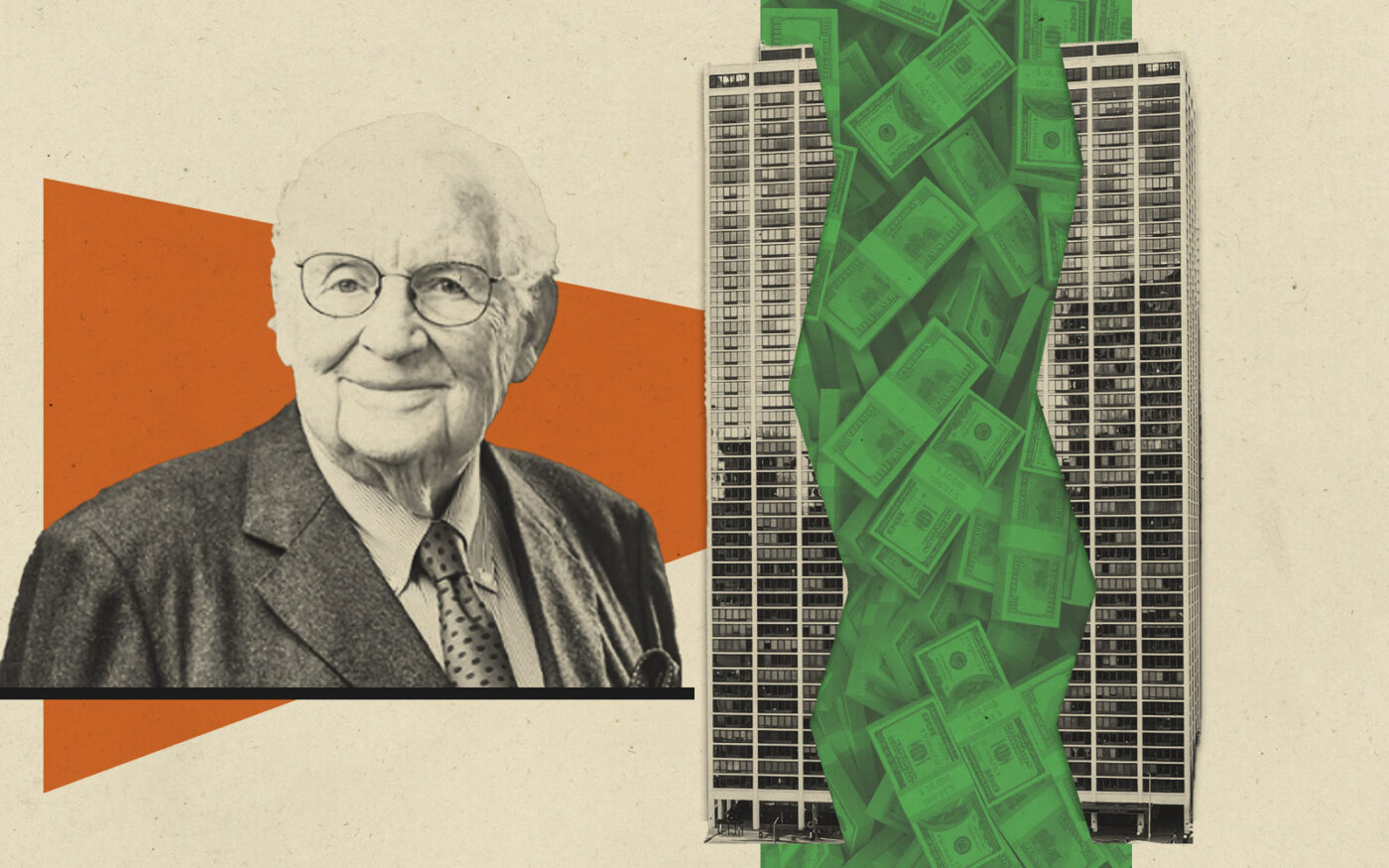The Habitat Company has taken on an outside investor to hold onto a Wacker Drive apartment tower following a big loan maturity, as surging property taxes and higher interest rates weigh down its value.
An entity tied to the Chicago-based development firm founded by Daniel Levin had to find $20 million to cover a gap between its previous $90 million loan for Columbus Plaza, at 233 East Wacker Drive, and the $70 million debt it pulled in last month as part of a cash-in refinancing, according to property records and people familiar with the transaction.
Northmarq provided Habitat with both loans, which were each sold off to Freddie Mac. The $90 million loan for the 47-story, 534-unit property was issued back in 2017 and matured in November.
An outside investor that isn’t identified in public records covered a substantial portion, but not all, of the chasm between the old loan and the new loan, a source familiar with the deal said. Habitat declined to comment but retained a majority stake in the property’s equity, the source said.
The deal marks the latest speed bump encountered by Chicago multifamily players, some of whom, such as Jonathan Holtzman, are facing large foreclosure lawsuits as property tax troubles and tight capital markets squeeze landlords. Other owners of big apartment complexes have opted to surrender their buildings to lenders through deed-in-lieu of foreclosure, sold their properties at a loss, such as JP Morgan’s investment arm at a Lake Shore Drive asset, or, like Habitat, sought outside investors to help close financial voids.
At the Columbus Plaza property, it was both the regular annual increases to property-tax bills as well as the additional $300 million property tax hike that Chicago Mayor Brandon Johnson initially pitched weeks ago as part of his budget plan that derailed the deal. Habitat’s investment partner was prepared to cover all of the debt gap but shrunk its commitment during negotiations as talk of a city tax increase echoed through halls of government. The tax-hike proposal ultimately dissipated as Johnson got a budget passed without additional real estate taxes this week.
But the tax-hike was called off too late in the game for Habitat, which had to land the refinancing in the weeks leading up to the budget’s final passage.
The annual tax bill at Habitat’s Columbus Plaza rose nearly 42 percent from 2018 through last year, starting at under $1.3 million and increasing consistently to nearly $1.8 million last year, public records show. And it could be in for another substantial hike: the property was assessed at $114 million this year, up from $84 million set by the Cook County Board of Review for 2023, meaning its share of the area’s tax burden is likely in for a big jump.
Multifamily players have lamented for years that the higher and less predictable tax values being set by Cook County Assessor Fritz Kaegi, as compared to his predecessor Joseph Berrios, deter investors from Chicagoland. Habitat could still appeal the assessor’s valuation this year, and it has won appeals that lowered its tax value for the Wacker Drive asset in years past.
While the Board of Review has frequently butted heads with Kaegi by granting commercial landlords appeals to reduce their tax bills and shift the total tax burden further onto the rest of the taxpayer base, the appeal process can be fickle, and county leadership this month urged reforms to make it more efficient and transparent.
Read more


